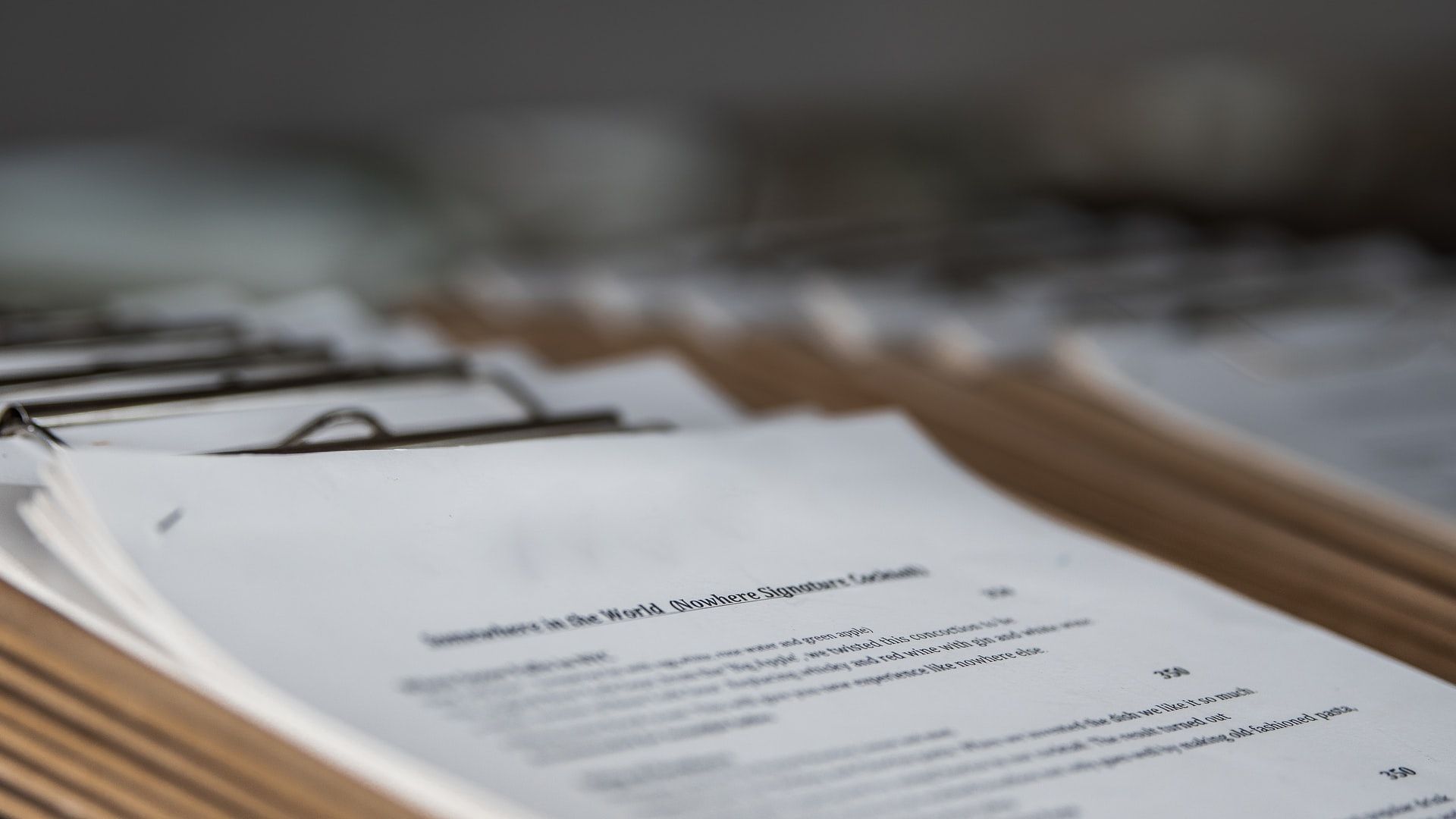Being a freelancer or owning a small business has undeniable perks compared to being a 9 to 5 employee. You get to organize your own program, shape your business according to your philosophy, all the while being at home in your cozy pajamas. Τhe possibilities can go as far as your imagination. At the same time, you need to have some freelance contract tips up you sleeve for any occasion.
So, freelancing has some cons and we’ve already delved into in the past. A major reason being a freelancer is tough sometimes, is payment delays. Ask any freelancer and they’ll tell you that this must be a universal phenomenon. If you’re not exactly new to freelancing, you’ve probably already noticed how difficult getting paid for a project really is. That’s why it’s really important to know how to write a contract to protect yourself from future complications.
If you are indeed new to freelancing, keep reading because this week’s subject is “contracts”. We’ll share freelance contract tips so that you draft a contract which will help you avoid payment issues in the future from clients, from the start. Without further ado, let’s explore the 4 freelance contract essentials!
Freelance contracts 101
A contract is essentially a paper where you outline the specifics of a collaboration in detail. A contract may contain information about the process that will be followed to complete a project, payment terms, even copyright ownership. Anything you believe is important to your business can be part of your contract.
In some industries, contracts contain clauses for any possible scenario that might occur to ensure payment, safety and get protection from lawsuits in case things go awry. Most freelancers think that one has to hold a law degree in order to draft a proper freelance contract. This could not be farther from the truth!
Anyone can make a freelance contract legally binding as long as the below elements exist:
- All parties involved must agree to the terms and conditions included in the freelance contract.
- There must be a mutual exchange of valuable “items”. Simply put, a product/service for an amount of money or some other form of asset.
If all this sounds like some kind of Chinese jibber-jabber, you can always consult a lawyer or search on the internet for freelance contract templates to get an idea of what a freelance contract should look like. And, of course, follow our freelance contract tips!
Learn everything you need to know on how to start working remotely and live a nomadic lifestyle.
Why freelance contracts are so important
The main purpose of a freelance contract is to clearly state the terms of the cooperation between you and your client. It clarifies what you are expected to deliver in exchange for payment and what happens in case something goes out of the plan.
The main reason why you need to use freelance contracts is that they protect you and your business. Late payment, or no payment at all, is the most common “affliction” freelancers suffer from. But, unless you’re using freelance contracts for every project, you kind of bring this affliction onto yourself. Ideally, every person you involve with professionally would be true to their word, just like you are. Unfortunately, this is not the case many times.
Having a freelance contract in place ensures that you can legally claim to get your reward after you deliver what the client requested.
Moreover, a freelance contract shows you are a responsible professional who is willing to follow through on their commitments, prepared to face the consequences otherwise. Clients will automatically feel safer once you propose to sign a freelance contract since it protects their rights, as well!
To make it easier for you to create a freelance contract, we have gathered the 4 absolute “must-haves” for a freelance contract to be legible and work in your favor. Let’s break them down one by one!
4 freelance contract tips to always get paid on time
1. Establish your rates & pricing
You and your clients must agree on the exact amount of your payment before you start working on anything and before delivering any items. The freelance contract between you is just a formal way to establish what you agree on that so you can move on and do some business!
If you have agreed on a price before drafting the freelance contract, this price should not be changed prior to speaking with them about the change. No one likes to be surprised by elevated prices just before signing a contract!
If you are a freelancer working on hourly rates, you need to include the minimum and maximum amount of time the project will approximately require.
2. Payment terms & conditions
The freelance contract payment terms and conditions is perhaps the most important section. Every freelancer who respects and values their work should include payment terms and conditions section in their freelance contracts. This is where you explicitly mention the method of payment, the date by which the amount is due and clauses for late payments.
This section is crucial to your cash flow and the legal protection against clients that are inconsistent and reckless. In our article “Essential Invoice payment terms and conditions to help you get paid on time” you will find more useful information and examples on how to get it right – give it a look!
3. Project details
This is where your freelance contract really gets interesting. Straightening out payment details is important, but making clear the hows and whys of your work is extremely important too!
Think about it; you want to undertake a project and keep it as neat and organized, as possible. You want the client to know what your methodology is, which tools you’re going to use and how much each step of the way is going to cost them.
This is where you can break down your costs as, well. A good and honest collaboration starts with honesty. This is a way to prove to your clients that your rates are in fact great and truly reflect your work. This is also where you get to protect the project’s score from “scope creeps”.
4. Project iterations
This list of freelance contract tips wouldn’t be complete if we didn’t cover last-minute…surprises! You’ve probably already experienced this before and you know it’s exhausting. Every freelancer’s nightmare is iterations upon iterations of re-iterations. Going back to your work in progress to tweak some aspects or add something is part of the process. But sometimes clients can be indecisive/weird/excessively demanding. So this has to stop at some point.
Signing a freelance contract can help you protect yourself (and your sanity) by including a clause that clearly states the maximum number of revisions on the project. The client will be fully aware that there is a limit, and you get to enjoy your sanity again!
And a lot more…
Truth is, freelance contracts can have various formats, including all kinds of clauses. What you need to keep in mind is that every aspect of the collaboration can be part of a freelance contract. We don’t suggest you overdo it with formalities. Yet you must include all the key-parts, so both sides can be safe and have a pleasant and long-lasting collaboration.
We hope you’ve found our freelance contract tips useful. If you’ve learned the importance of freelance contracts the hard way, feel free to share your experience in the comments below along with your suggestions!




